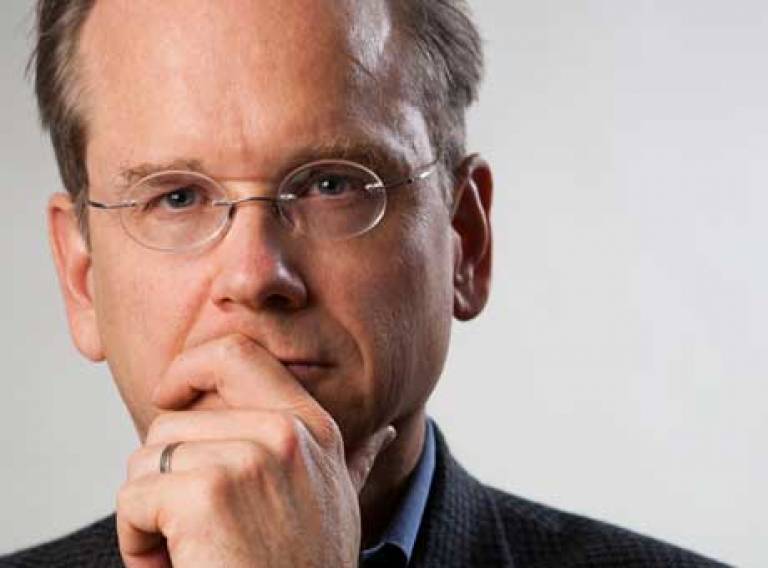Lessig to give Annual Lecture to UCL Centre for Ethics and Law
12 February 2014

Any true fan can tell you there are only two real people to have been portrayed by actors on the TV show The West Wing. One was left-leaning blogger Atrios; the other, played by Back to the Future actor Christopher Lloyd, was a Harvard academic drafted in (in the episode) to help a fictional Belorussian delegation draft its new post-Soviet constitution. His name is Professor Lawrence Lessig.
When it comes to Lessig, fact makes the fiction seem milquetoast. From his time at the University of Chicago, he really does have expertise in constitutionalism in Eastern Europe, and he really did have a hand in an early draft of the constitution of the Republic of Georgia. But if there is a constitution that Lessig is now most eager to re-write, it is the Constitution of the United States of America.
He has been one of the voices suggesting a Second Constitutional Convention to be called by state legislatures under Article V, and is a leading figure in the movement to combat institutional corruption of American politics by political donors. His book Republic, Lost: How Money Corrupts Congress – and a Plan to Stop It was published in late 2011, in the wake of the notorious US Supreme Court decision in Citizens United v Federal Election Commission. A short introduction to his work on corruption can be found here.
Lessig is best-known in many circles for his work on cyberlaw, copyright reform, and the application of law to a digital economy. His magnum opus Code, which is available to read online – is one of the key texts for understanding the role that software plays and will play in a networked and digital society.
It was in this context that I first had the privilege of seeing Lessig speak. He was giving the keynote address at the annual conference of the Open Rights Group. ORG campaigns on various issues relating to digital rights, but Lessig’s lecture was memorable for its exegesis of the systemic roadblocks to sensible legislation in that area of interest. That day, his cri de coeur was for all public interest campaigners, whatever our particular campaigns, to each adopt anti-corruption reform as our ‘second cause’. Only success in the latter could make us each effective in fighting for the former.
Professor Lessig will be speaking in London on Friday 14 March 2014 at the Annual Lecture organised by UCL’s Centre for Ethics & Law.
 Close
Close

